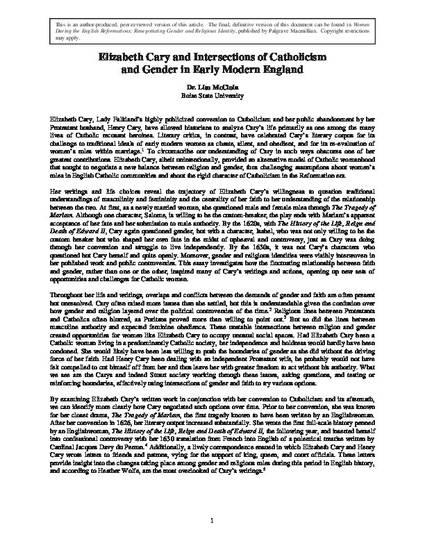
Historians have analyzed the life of Elizabeth Cary, Lady Falkland, primarily in the context of her highly publicized conversion to Catholicism and her equally public separation from her Protestant husband, Henry Cary. Through this scrutiny, she has become one among many English Catholic recusant heroines. Literary critics, in contrast, have celebrated Cary's literary corpus both for its challenge to traditional ideals of early modern women as chaste, silent, and obedient and for its reevaluation of women's roles within marriage.1 To circumscribe our understandings of Cary in such ways obscures one of her greatest contributions. Elizabeth Cary, albeit unintentionally, provided an alternative model of Catholic woman hood that sought to negotiate a new balance between religion and gender, thus challenging assumptions about women's roles in English Catholic communities and about the rigid character of Catholicism in the Reformation era.
This is an author-produced, peer-reviewed version of this article. The final, definitive version of this document can be found in Women During the English Reformations: Renegotiating Gender and Religious Identity, published by Palgrave Macmillian. Copyright restrictions may apply.
Available at: http://works.bepress.com/lisa_mcclain/16/
